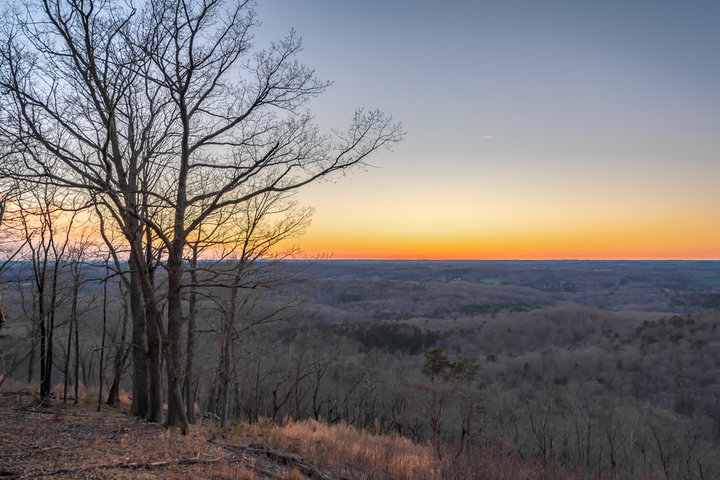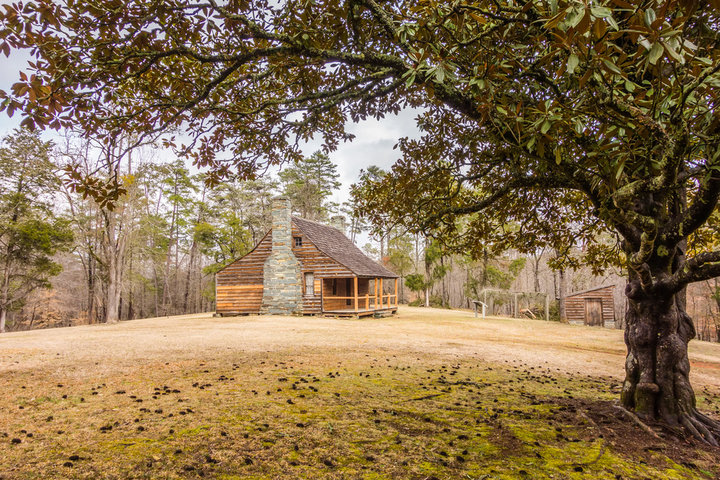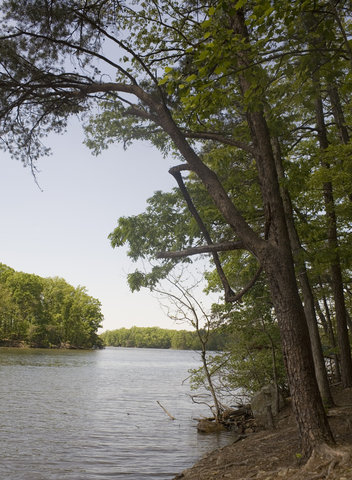
The Uwharrie Mountains of North Carolina are the oldest mountains in the world. Before the arrival of humans, the Uwharrie Mountains of North Carolina were a wild and pristine wilderness. The mountains are thought to have been formed during the late Paleozoic era, approximately 300 million years ago. The region was once covered by a shallow sea, and over time, sedimentary rocks were deposited on the sea floor. These rocks were later uplifted to the height of the rockies and eroded down to their current level, creating the distinctive peaks and valleys of the Uwharrie Mountains. These worn down mountains have a rich and fascinating human history that spans thousands of years. The region was first inhabited by Native American peoples, who lived in the area for thousands of years before the arrival of European explorers in the 16th century.
As the region’s climate and ecosystem evolved, a diverse range of plant and animal species emerged. The Uwharrie Mountains are home to a variety of unique and rare species, including several plant species that are found nowhere else in the world. The mountains are also home to a range of wildlife, including black bears, white-tailed deer, and a variety of bird species.

The Uwharrie Mountains played an important role in the lives and culture of the Native American peoples who lived in the region for thousands of years. These early inhabitants relied on the mountains for food, shelter, and spiritual sustenance. They were skilled hunters, fishers, and gatherers, and they developed sophisticated technologies for exploiting the region’s natural resources. The Native American peoples who lived in the Uwharrie Mountains were primarily hunter-gatherers who relied on the region’s abundant natural resources for survival. The Uwharrie Mountains provided an ideal habitat for a range of game animals, including deer, bear, and turkey, and the region’s rivers and streams were teeming with fish. Evidence of these early Native American cultures can still be found in the Uwharrie Mountains today. Archaeological sites, including the Town Creek Indian Mound, offer a glimpse into the lives and cultures of the people who once inhabited the region.
The arrival of European explorers in the 16th century marked a turning point in the history of the Uwharrie Mountains. The first European to explore the region was likely Spanish explorer Juan Pardo, who led an expedition through the area in the mid-16th century. The expedition was unsuccessful in establishing a permanent settlement, but it did pave the way for future European settlement in the region.

Over the next few centuries, the Uwharrie Mountains became a center for the production of naval stores, including turpentine and tar. The region’s abundant pine trees provided an ideal source of raw material for these products, and the production of naval stores became a major industry in the area.
In the late 19th and early 20th centuries, the Uwharrie Mountains became a center for the production of gold. The discovery of gold in the region led to a gold rush, and several gold mines were established in the area. Today, visitors to the Uwharrie Mountains can still explore the remains of these mines and learn about the region’s mining history.
In the mid-20th century, the Uwharrie Mountains became a center for outdoor recreation. The region’s natural beauty and abundant outdoor recreational opportunities, including hiking, camping, and fishing, made it an ideal destination for outdoor enthusiasts.
Today, the Uwharrie Mountains continue to be a popular destination for outdoor recreation, as well as a site of historical and cultural significance. The Uwharrie Mountains represent a fascinating and important natural and cultural resource. The mountains are a testament to the power and majesty of nature, as well as to the rich and complex history of the people who have inhabited the region for thousands of years. Whether you’re interested in the region’s natural beauty, its cultural history, or its outdoor recreational opportunities, the Uwharrie Mountains of North Carolina offer something for everyone.

